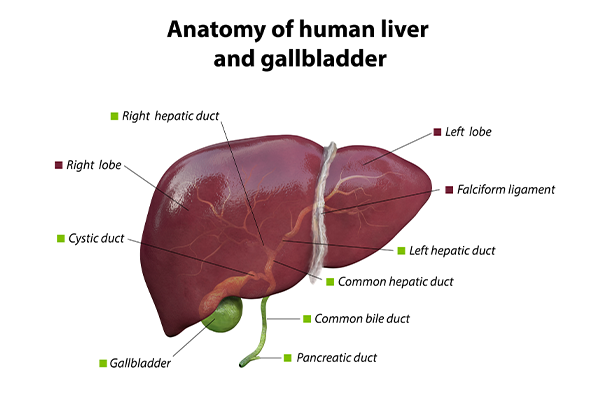
A fatty pancreas, also known as nonalcoholic fatty pancreas disease (NAFPD), is characterised by the accumulation of fat within the pancreatic tissue. This condition is increasingly recognised as a component of metabolic syndrome and is associated with obesity, insulin resistance, and type 2 diabetes. While it may not always present immediate symptoms, a fatty pancreas can impair pancreatic function over time and increase the risk of pancreatitis and pancreatic cancer. This blog is a compilation of all the aspects related to it and aims to offer you detailed insights on causes, symptoms, natural strategies to manage it and more.
Synopsis
Fatty Pancreas Causes?
Several factors contribute to the development of a fatty pancreas:
-
Obesity and Overweight: Excess body fat, particularly visceral fat, is closely linked to fat deposition in the pancreas.
-
Insulin Resistance and Type 2 Diabetes: These conditions can lead to increased fat accumulation in the pancreas.
-
High-Fat Diets: Consuming diets rich in saturated fats and low in fibre can promote fat buildup in the pancreas.
-
Alcohol Consumption: Excessive alcohol intake can exacerbate fat accumulation and lead to pancreatitis.
-
Genetic Factors: Certain genetic predispositions may increase the risk of fat deposition in the pancreas.
More Reads: 10 warning signs of acute liver disease

Fatty Pancreas Symptoms
Fatty pancreas often progresses silently and is frequently discovered incidentally during imaging for other conditions. While many individuals remain asymptomatic in the early stages, the condition can lead to various symptoms and complications as it advances.
1. Abdominal Discomfort or Pain: Persistent or intermittent pain in the upper abdomen, which may radiate to the back.
2. Digestive Issues:
-
Nausea and vomiting.
-
Indigestion or bloating, especially after consuming fatty meals.
-
Diarrhoea or oily, foul-smelling stools (steatorrhea) due to malabsorption.
3. Unintended Weight Loss: Despite normal or reduced food intake, weight loss can occur due to impaired nutrient absorption.
4. Fatigue and Weakness: General feelings of tiredness, which may be related to nutrient deficiencies.
5. Elevated Blood Sugar Levels: As pancreatic function declines, insulin production may be affected, leading to higher blood glucose levels.
Diagnostic Tests to Determine Fatty Pancreas
Diagnosing a fatty pancreas, or pancreatic steatosis, involves a combination of imaging studies and, in certain cases, laboratory tests. While a definitive diagnosis typically requires imaging, these methods help assess the extent of fat accumulation and rule out other pancreatic conditions.
-
Transabdominal Ultrasound (USG)
-
Computed Tomography (CT) Scan
-
Magnetic Resonance Imaging (MRI)
-
Magnetic Resonance Proton Density Fat Fraction (MR-PDFF)
-
Endoscopic Ultrasound (EUS)
-
Histopathological Examination (Biopsy)
More Reads: Top 10 Warning Signs of Liver Cell Failure
Natural Strategies for Fatty Pancreas Treatment
Adopting natural lifestyle changes can help manage and potentially reverse fatty pancreas:
1. Dietary Modifications
-
Low-Fat, High-Fibre Diet: Emphasise fruits, vegetables, whole grains, and lean proteins. Limit intake of saturated fats and processed foods. Incorporate Antioxidant-Rich Foods: Foods like berries, leafy greens, and nuts can combat oxidative stress in the pancreas.
-
Limit Alcohol and Sugary Beverages: Reducing alcohol and sugar intake can decrease fat accumulation and improve insulin sensitivity.
2. Regular Physical Activity
-
Exercise: Engage in at least 150 minutes of moderate-intensity aerobic activity per week to aid weight loss and improve insulin sensitivity.
3. Weight Management
-
Achieve and Maintain a Healthy Weight: Weight loss can significantly reduce fat in the pancreas and improve its function.
4. Hydration
-
Increase Fluid Intake: Adequate hydration supports overall metabolic health and assists in fat metabolism.
Conclusion
It's appropriate to consult a gastroenterologist in Gurgaon. Early detection and management can prevent complications. A fatty pancreas is a modifiable condition. Through dietary changes, regular exercise and weight management, individuals can improve pancreatic health naturally. Regular medical check-ups and consultations with the best gastroenterologist in Gurugram are crucial to monitor progress and make necessary adjustments to the management plan.
FAQ's
A fatty pancreas, also known as pancreatic steatosis, refers to the accumulation of fat within the pancreatic tissue. This condition is often detected incidentally during imaging studies, such as ultrasound or MRI, conducted for other reasons. While it may not present immediate symptoms, it can be associated with metabolic disorders and may affect pancreatic function over time.
Several factors contribute to the development of a fatty pancreas:
-
Obesity and Overweight: Excess body fat, particularly visceral fat, is closely linked to fat deposition in the pancreas.
-
Insulin Resistance and Type 2 Diabetes: These conditions can lead to increased fat accumulation in the pancreas.
-
High-Fat Diets: Consuming diets rich in saturated fats and low in fibre can promote fat buildup in the pancreas.
-
Alcohol Consumption: Excessive alcohol intake can exacerbate fat accumulation and lead to pancreatitis.
-
Genetic Factors: Certain genetic predispositions may increase the risk of fat deposition in the pancreas.
Fatty pancreas often progresses silently and is frequently discovered incidentally during imaging for other conditions. While most individuals remain asymptomatic in the early stages, the condition could possibly lead to various symptoms and conditions as it advances:
-
Abdominal Discomfort
-
Digestive Issues
-
Unintended Weight Loss
-
Fatigue and Weakness
-
Elevated Blood Sugar Levels
Management of fatty pancreas primarily involves lifestyle modifications:
-
Adopt a balanced diet rich in fruits, vegetables, whole grains, and lean proteins.
-
Engage in moderate-intensity aerobic activity to aid weight loss and improve insulin sensitivity.
-
Achieving and maintaining a healthy weight can significantly reduce fat in the pancreas and improve its function.
-
Reducing alcohol and sugar intake can decrease fat accumulation and improve insulin sensitivity.
-
Adequate hydration supports overall metabolic health and assists in fat metabolism.
For evaluation and management of fatty pancreas, you may consider consulting gastroenterologists or endocrinologists in Delhi. Consult with our renowned gastroenterologist in Gurgaon to discuss your specific condition and receive personalised care.





















 5 Min Read
5 Min Read










.png)









